Publications
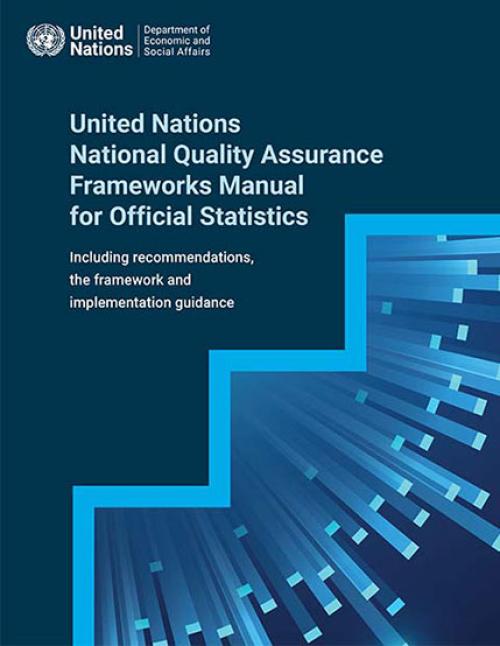
The United Nations National Quality Assurance Frameworks Manual for Official Statistics (UN NQAF Manual) provides recommendations on quality assurance, a UN quality assurance framework, and guidance for the implementation of a national quality assurance framework. The Manual aims at addressing quality assurance in different circumstances and situations, hereby supporting countries in safeguarding the role of official statistics as trusted source of information. The Manual is directed at assuring the quality of official statistics throughout the entire national statistical system but also provides guidance for engagement with entities that are outside of the national statistical system…
The impacts of climate change and increasing inequality across and within countries are undermining progress on the sustainable development agenda, threatening to reverse many of the gains made over the last decades that have improved people’s lives, warns the 2019 report on the Sustainable Development Goals.
Launched during the UN High-level Political Forum on Sustainable Development, a critical annual stocktaking event, the report, based on the latest available data, remains the cornerstone for measuring progress and identifying gaps in the implementation of all 17 Sustainable Development Goals.
Four years since the adoption of the Sustainable Development Goals --…
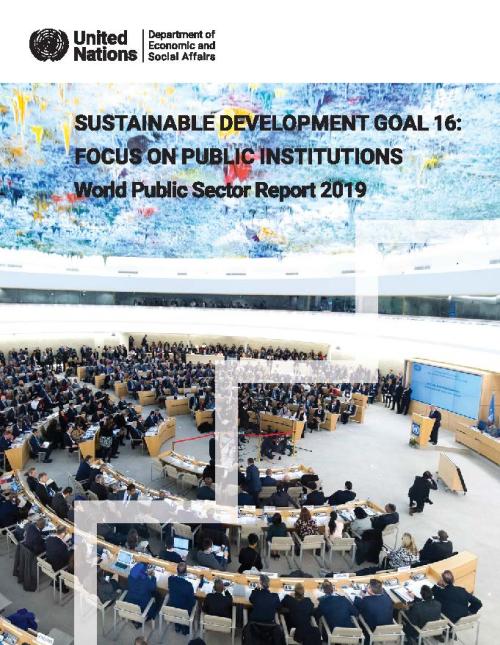
The 2030 Agenda and the Sustainable Development Goals (SDGs) prominently feature institutions, both as a cross-cutting issue in many of the goals and as a standalone goal (SDG 16). The World Public Sector Report 2019 looks at national-level developments in relation to several concepts highlighted in the targets of Goal 16, which are viewed as institutional principles: access to information, transparency, accountability, anti-corruption, inclusiveness of decision-making processes, and non-discrimination. The report surveys global trends in these areas, documenting both the availability of information on those trends and the status of knowledge about the effectiveness of related policies…
Countries in all regions of the world are continuing to make strides in their efforts to improve e-government and to provide public services online according to a new report launched by the United Nations Department of Economic and Social Affairs today.
In a 2018 ranking of countries on e-government development, Denmark, Australia, and Republic of Korea came out on top of a group of 40 countries, scoring very high on an index (the E-Government Development Index—EGDI), which measures countries’ use of information and communications technologies to deliver public services. The Index captures the scope and quality of online services, status of telecommunication infrastructure and…
A fast-changing climate, conflict, inequality, persistent pockets of poverty and hunger and rapid urbanization are challenging countries’ efforts to achieve the Sustainable Development Goals (SDGs), according to the UN’s latest SDG progress report.
The Sustainable Development Goals Report 2018 found that conflict and climate change were major contributing factors leading to growing numbers of people facing hunger and forced displacement, as well as curtailing progress towards universal access to basic water and sanitation services.
For the first time in more than a decade, there were approximately 38 million more hungry people in the world, rising from 777 million in…
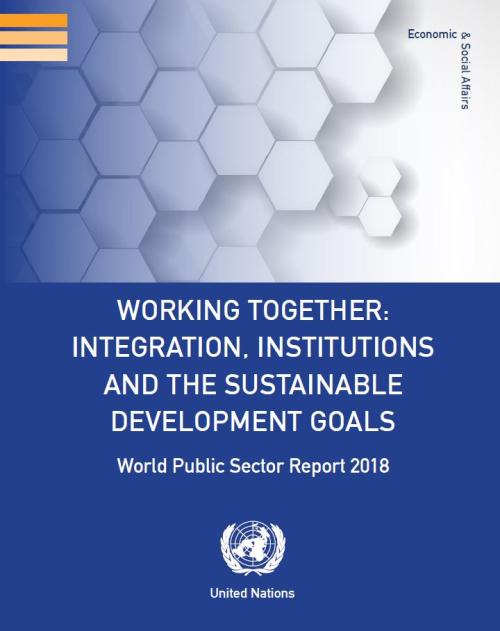
Two years ago, Member States of the United Nations adopted the 2030 Agenda for Sustainable Development. Acknowledging possible synergies and trade-offs between the sustainable development goals (SDGs) and targets will make it much easier to achieve the Agenda and to translate ambition into reality.
The World Public Sector Report 2018 aims to inform efforts by countries to foster policy integration for implementing the SDGs. It asks, what are the challenges to and opportunities for policy integration across the different stages of policy cycle at the national level? What are some innovative examples of institutional and administrative arrangements that can foster integrated…
If the world is to eradicate poverty, address climate change and build peaceful, inclusive societies for all by 2030, key stakeholders, including governments, must drive implementation of the Sustainable Development Goals (SDGs) at a faster rate, according to the The Sustainable Development Goals Report 2017, launched by UN Secretary-General Antonio Guterres.
Using the most recent data available, the annual Sustainable Development Goals Report provides an overview of the world’s implementation efforts to date, highlighting areas of progress and areas where more action needs to be taken to ensure no one is left behind. The Sustainable Development Goals Report 2017report found that…
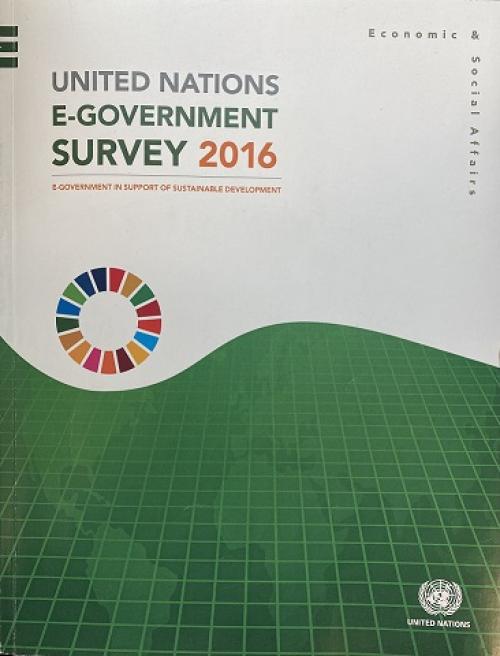
The United Kingdom, followed by Australia and the Republic of Korea, lead the world in providing government services and information through the Internet, e-government, according to a new survey released today by the United Nations showing the progress of nations in promoting e-government.
The 2016 UN E-Government Survey provides new evidence that e-government has the potential to help support the implementation of the 2030 Agenda and its 17 sustainable development goals (SDGs).
The Survey found that United Kingdom has pursued continued development on e-government innovation, and its Government Digital Service has been replicated by other countries around the…
Launching the first-ever Sustainable Development Goals report on the new global development agenda adopted in 2015, Secretary-General Ban Ki-moon said that the 15-year undertaking was “off to a good start” but would require all parts of the UN family and its partners to work together.
“We have embarked on a monumental and historic journey,” the Secretary-General told the UN High-level Political Forum on Sustainable Development (HLPF), which opened on 11 July and ended on 20 July 2016, at the UN Headquarters in New York.
“We must all learn, in national governments, in local authorities, in business and civil society, and also at the United Nations, to think differently,” he…
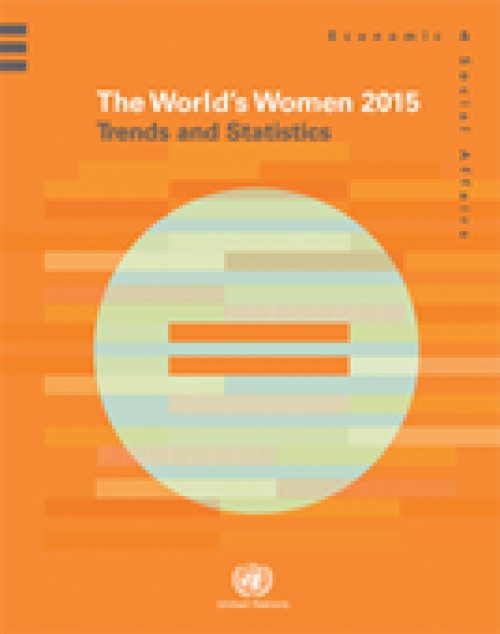
The lives of women and girls around the world have improved in several areas over the last 20 years, according to the new UN DESA report “The World’s Women 2015,” launched today. Coming on the heels of the recently adopted Sustainable Development Goals (SDGs), this new set of data on women and girls worldwide brings into sharp perspective the need for gender equality outlined in Goal 5.
“We cannot achieve our 2030 Agenda for Sustainable Development without full and equal rights for half of the world’s population, in law and in practice,” said UN Secretary-General Ban Ki-moon at a recent event on gender equality organized on the side of the Sustainable Development Summit.…
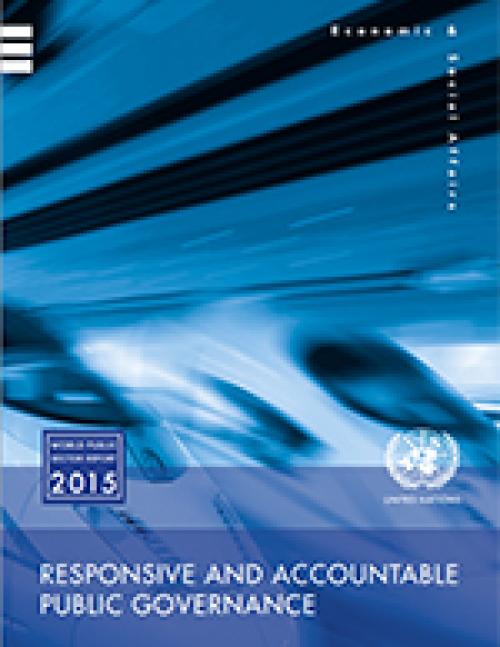
The 2015 World Public Sector Report (WPSR) published, titled Responsive and Accountable Public Governance, analyses the most salient features of public governance for enabling inclusive economic growth, social justice and environmental sustainability.
Heads of state and government have adopted a new development agenda to guide sustainable development efforts for the next 15 years. Member States will have the responsibility of turning this collective vision of sustainable development into reality for their citizens. These aspirations will not be realized without a transformation of public governance to support integration among different levels, spheres and sectors. Policies,…
Evidence shows that the global Goals worked. They galvanized the entire global community to address the most pressing issues at the beginning of the Millennium, centered in lifting people from extreme poverty and improving the lives of those most disadvantaged. “The MDG experience provides compelling evidence that the international community can be mobilized to confront complex challenges. Governments, civil society and a wide range of international actors coalesced behind the MDGs in a multi-front battle against poverty and disease,” said Secretary-General Ban Ki-moon.
They served as a framework for local, national, regional and global monitoring of development progress…
 Welcome to the United Nations
Welcome to the United Nations